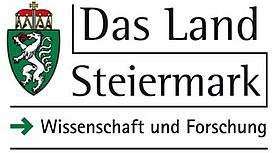Vortragende
Elias Moser
Elias Moser is a Postdoctoral Assistant at University of Graz. He studied Political and Economic Philosophy in Berne and finished his doctorate in Legal Philosophy also at the University of Berne in 2017, where he was a Assistant at the Institute of Criminal Law. His thesis investigates the concept of inalienable rights (“Unveräußerliche Rechte”) and was published by Mohr Siebeck in 2021. Before coming to Graz, he was a researcher at the Austrian Academy of Sciences and the University of Vienna. In 2021 he was a Research Fellow at the Centre of Philosophy of Natural and Social Science CPNSS at London School of Economics LSE. His research covers different topics in political, legal, and economic philosophy. He has published articles on theories of rights and criminal law but also on ethical questions with regard to recent technological developments.
Philipp-Alexander Hirsch
Philipp-Alexander Hirsch is a legal scholar and philosopher. He has been Leader of an Independent Research Group on criminal‑law theory at the Max Planck Institute in Freiburg since 2022, having studied and obtained doctorates in law and philosophy at the universities of Göttingen, Vienna, and Toronto before taking up this role. He earned his doctor philosophiae in 2016 with an investigation in Immanuel Kant’s political philosophy (“Freiheit und Staatlichkeit bei Kant”) and his doctor juris in 2020 with a thesis on crimes as rights infringements (“Verbrechen als Rechtsverletzung”) in 2020. Both studies have been published as monographs by de Gruyter and Duncker & Humblot respectively. In addition to his position in Freiburg, he is completing his habilitation in criminal law at the University of Göttingen, where he is also a lecturer in the Department of Philosophy. His research focuses on criminal law and criminal procedure, legal philosophy and legal theory, and the history and philosophy of criminal law in the Age of Enlightenment.
Hamish Stewart

Hamish Stewart is Professor of Law at the University of Toronto. He joined the faculty in 1993. Before attending law school, he studied economics. He acquired his BA University of Toronto in 1983. His PhD he received from Harvard University in 1989, where he taught for a year in the economics department at Williams College. He received an LLB degree from the University of Toronto in 1992, clerked at the Ontario Court of Appeal from 1992 to 1993, and was called to the Ontario Bar in 1998. Professor Stewart has published numerous papers in these areas as well as papers on legal theory, the law of contract, and economic methodology. He is the general editor of “Evidence: A Canadian Casebook” and the associate editor of the Canadian Criminal Cases. His most recent book is “Fundamental Justice,” a treatise on s. 7 of the Canadian Charter of Rights and Freedoms.
Aness Kim Webster

Aness Kim Webster is Assistant Professor in the Department of Philosophy at Durham University. She studied philosophy at the University of Auckland, where she acquired her MA degree in 2007. She received her PhD from University of Southern California with her thesis entitled “Responsibility and Rights: A Search for a Principled Distinction between Criminal Law and Tort Law” in 2016. Before coming to Durham, she was appointed Assistant Professor at the University of Nottingham. Aness Webster’s work re-examines various notions of normativity (autonomy, agency, shame). She argues that many standard theories can be scrutinized by considering the lived experiences of members of marginalized groups.
Markus Stepanians

Since 2013 Markus Stepanians Extraordinary Professor of Philosophy at the University of Berne. He studied Philosophy, Literature, and Linguistics at the University of Hamburg, where he acquired his MA in Philosophy 1990. After that he was a Visiting Scholar at the Department of Philosophy in Harvard and received his doctoral degree in 1994. He worked as Postdoctoral Assistant at the University of Saarland and defended his habilitation in 2005. Before coming to Berne, he led several research projects at the RTHW Aachen. Markus Stepanians’ research focusses on different topics in the philosophy of language, the metaphysics of causation, and the nature of moral and legal rights.
Galia Schneebaum

Galia Schneebaum is an Assistant Professor at the Harry Radzyner Law School at Reichman University. She earned her LLB and LLM with distinction, as well as her PhD from Tel-Aviv University. She was a Visiting Scholar at the University of Toronto and a Postdoctoral Fellow at the Hebrew University of Jerusalem. Galia Schneebaum’s research is at the intersection of criminal law, sociological, and political theory, and focuses on emerging conceptions of wrongdoing in the law. It covers a variety of topics, among which are the legal regulation of authority relations, sex offenses, abuse offenses, workplace bullying, criminalization theory, and the legal regulation of boycotts. Her publications appeared in leading journals, such as the Journal of Criminal Law & Criminology, Law & Social Inquiry, and South Carolina Law Review.
Joachim Renzikowski
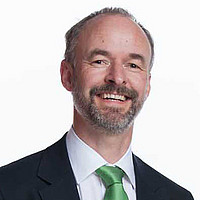
Joachim Renzikowski is Professor of Criminal Law and Philosophy of Law and Theory of Law at Law at Matin-Luther University Halle-Wittenberg since 1998. He studied law at the University of Erlangen. He acquired his doctorate in 1993 and the habilitation 1997 from the University of Tübingen. He is an expert in criminal law in connection with legal theory. His areas of specialization range from fundamental issues such as the theory of norms or the European Convention of Human Rights to more applied legal philosophy, such as sex crimes and human genetics.
Sören Lichtenthäler

From 2011 to 2016 Sören Lichtenthäler studied law at the Johannes Gutenberg-University in Mainz and passed the first state law examination in July 2016 with distinction as the best graduate in Rhineland-Palatinate. From 2016 to 2019 he worked as research associate at University of Mainz and wrote his doctoral thesis on the protection and restriction of property rights by criminal law (“Eigentumsschutz und Besitzverbot”). Until 2022 he was a legal clerk at the Higher Regional Court OLG of Frankfurt am Main and passed the second state law examination January 2022. Since March 2022, he is a Postdoctoral Researcher at the chair of Volker Erb at the University of Mainz.
Matthew Dyson
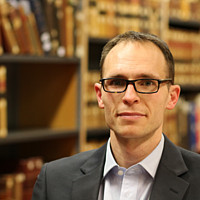
Matthew Dyson is Professor of Civil and Criminal Law at the Faculty of Law, University of Oxford, and a Tutorial Fellow of Corpus Christi College, Oxford. He is an associate member of 6KBW College Hill, the Chambers of Simon Denison QC. Previously he was a Fellow and Director of Studies of Jesus College, Cambridge, and Trinity College, Cambridge. He has held visiting positions at various Universities of Paris, such as Dauphine, Cape Town, Iowa, Göttingen, Sydney, Harvard and the Max Planck Institute for International and Comparative Private Law, Hamburg. Matthew Dyson’s work focusses on criminal law, tort law and the relationship between the two, particularly from a comparative legal history perspective. They include four co-edited edited volumes on the topics of risk, criminal liability, and tort law published at Cambridge University Press between 2015 and 2022.
Mark Dsouza
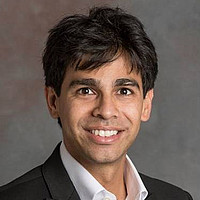
Mark Dsouza is an Associate Professor of Law at University College London. He achieve his PhD in 2014 at the University of Cambridge and converted his doctoral thesis into a monograph titled “Rationale-Based Defences in Criminal Law,” published by Hart in 2017. Also, he has written extensively on the theory and philosophy of consent, the act-omission distinction, the supposed duty to retreat before using force in self-defense, criminal culpability, accessorial liability, and corporate criminal liability. His papers have appeared in journals like the Modern Law Review, Oxford Journal of Legal Studies, Legal Studies, Cambridge Law Journal, Law and Philosophy, King’s Law Journal, Northern Ireland Legal Quarterly, and UCL Journal of Law and Jurisprudence.
Michelle Coleman
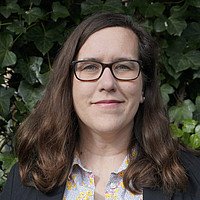
Michelle Coleman is a Lecturer in Law at Swansea University, where she teaches in the areas of criminal law and evidence. Prior to her current position, Michelle was a Lecturer at Middlesex University, worked in the Victims Participation and Reparations Section of the International Criminal Court, and practiced law for several years as a Public Defender in Cumberland County, New Jersey. Michelle’s research interests are in human rights, international criminal law, criminal law, and evidence. Her book, “The Presumption of Innocence in International Human Rights and Criminal Law,” was published by Routledge in 2021.
Ivó Coca-Vila
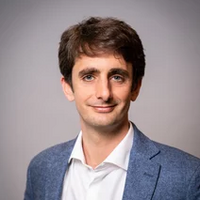
Ivó Coca-Vila joined the Max Planck Institute for the Study of Crime, Security and Law in 2020 as Senior Researcher, having previously worked as research assistant at the University of Freiburg. After receiving his PhD and LLM from Pompeu Fabra University, he was appointed Postdoctoral Fellow at the Alexander von Humboldt Foundation in 2017. Since the beginning of 2022 he holds a tenured position (Ramón y Cajal Fellowship) at the Law Department of the Pompeu Fabra University. Coca-Vila’s main research interests lie in the foundations of criminal law, in particular he is interested in the theory of crime and criminalization, recent topics at the intersection of criminal law, philosophy and ethics, as well as theoretical questions concerning property and white-collar crimes. His research mostly investigates topics from a transnational perspective.
Markus Abraham
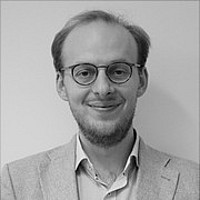
Markus Abraham worked from 2011 as Research Assistant at the Chair for Criminal law, Criminology and Philosophy of Law at University of Passau. From 2016 until now he was a Research Assistant at the Chair for Philosophy of Law and Criminal Law at Hamburg University. His doctoral thesis on sanctions, norms, and trust (“Sanktion, Norm, Vertrauen”) was published in 2018. Currently he is working on the subject of omission, and in particular on positive duties in criminal law.
Antony Duff
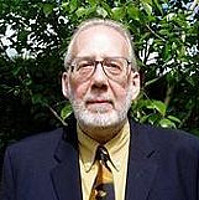
Antony Duff is Professor Emeritus of the Department of Criminal Law at University of Stirling and Honorary Professor at the University of Edinburgh Law School. He arrived in Stirling in 1970 after he pursued graduate work at Oxford, and a year at the University of Washington, Seattle. From 2010 to 2015 he held a part-time position in the Law School at the University of Minnesota. From 2011-2014 he chaired a British Academy Working Group on the use of imprisonment. He is still active as a researcher as well as numerous other professional functions. For example, he is Founding Co-Editor of the journal Criminal Law and Philosophy and Director of the Robina Institute for Criminal Law and Criminal Justice at University of Minnesota Law School. His extensive work covers almost all aspects of the philosophy of criminal law. A particular focus lies on the philosophy of punishment, on issues that connect philosophy of action with the basic principles of criminal liability, on criminalization, and on the moral and political preconditions of criminal liability.
Gregory Antill
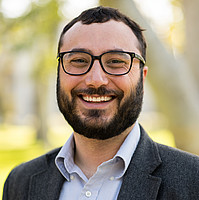
Gregory Antill is a J.D. Candidate at Yale Law School. He received his Ph.D. in philosophy from UCLA, where he was an Andrew W. Mellon Fellow in Humanistic Studies. Before coming to Yale, he taught as a Visiting Assistant Professor in the Philosophy and Public Affairs Program at Claremont McKenna College. Gregory Antill has research interests in criminal law, evidence, tort law, and bioethics, where he applies recent conceptual advances in action theory, epistemology, and the philosophy of mind to traditional legal questions about mens rea, culpability, competence, and mental illness. At Yale, he is an editor at the Yale Law Journal, editor-in-chief of the Yale Journal of Law and the Humanities, and a Student Fellow at the Solomon Center for Health Law and Policy.
Tatjana Hörnle
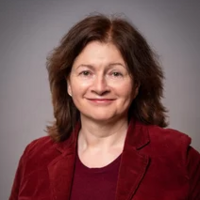
Since 2019, Tatjana Hörnle is Director of the Max Planck Institute for Research on Crime, Security and Law, Head of the Department of Criminal Law in Freiburg. At the same time, she is an Honorary Professor at the Faculty of Law of the Humboldt University in Berlin. She studied in Tübingen and acquired her MA in Criminal Justice at Rutgers University, New Jersey. Both her doctoral degree and her habilitation she attained at LMU Munich. Afterwards she held numerous professorships at different universities, such as Regensburg and Bochum, Toronto, and, from 2009 to 2019 HU Berlin. Tatjana Hörnle’s research focusses on ethical and social issues in the field of criminal law. These include theories of criminalization, theories of punishment, and evaluations of criminal law. She is an expert in sexual criminal law and the philosophy of human dignity. Furthermore, her publications focus on criminal law theory in multicultural societies.
Kontakt
Elias Moser
Arbeitsbereich Praktische Philosophie
Karl-Franzens Universität Graz
Philipp-Alexander Hirsch
Max-Planck-Institut zur Erforschung von Kriminalität, Sicherheit und Recht, Freiburg

